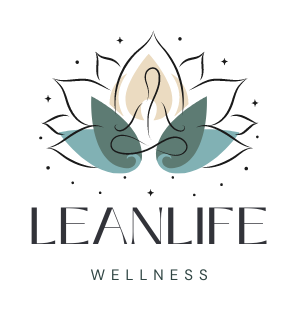
Goal Setting

Goal Setting
We all have made/continue to make goals for almost every aspect of our life whether that be to make more money or get that big promotion at work, cut calories and exercise more, spend more time with family, pick up a hobby that you have always wanted to learn more about, etc. If you are reading this, it’s likely you already have a potential goal in mind to live a healthier life. Unfortunately, most individuals are unsuccessful in accomplishing their goals. The reason for this is that those goals are often unrealistic and lack structure, making them difficult to consistently follow. Goals also need to be evaluated and reassessed when necessary and include detailed strategies to effectively achieve the desired outcome. It is important for those intending to set an important goal for themselves to understand the goal-setting process; as well as how to properly implement that process so that they are motivated, confident, and focused enough to consistently follow the path to accomplishment.
A common mistake that is made when setting a goal is making it too vague. It is okay to make some subjective or general goals (goals that are more broad and lacking detail), however, subjective goals need to be accompanied by consistent and specific behaviors. Subjective goals should be broken down into objective goal(s) that include more detail and can be easily measured/monitored. For example, a client may have a goal that they want to lose weight and feel good (subjective). An objective goal to complement this would include how much weight loss, the timeframe, and how the goal will be accomplished. So, “I want to lose 30 pounds in 6 months, by reducing my calories to 1,200 kcal/day” would be an example of an objective goal that helps the client achieve their overall subjective goal. Most people are looking for the increased confidence and energy that comes from being at a healthier weight or simply eating more nutritionally dense foods. These are subjective wants that in order to achieve them need a more detailed strategy, making them more objective and possible to achieve.
According to Edwin Locke and Gary Latham – leaders in goal setting theory, “Goals that are specific and challenging, but not overly challenging lead to high performance over 90% of the time, compared to goals that are too easy and generic” (Riopel, 2019).
When I work with clients I like to learn their goals, including the specifics of what they want to gain from their objectives in the short and the long term. The why is the driving force that will keep you motivated and consistent, even after the excitement of a new goal has worn off. I will help you figure out exactly what you want to achieve and how to properly work towards and accomplish your objectives.
Goal Setting can be broken up into Objectives and Key Results, also known as OKRs.
“It almost doesn’t matter what you know, what matters is execution.” – Andy Grove
The Objective is the direction and what you are trying to accomplish. The Key Results include how you are going to get those objectives accomplished. These are two important key factors in goal setting, and we will discuss them both. Think of Key Results as milestones, towards your objective, which means they will evolve as you approach your goal.
Goals should be Significant, Concrete, Action-Oriented, and Inspirational – goals that involve taking better care of your nutrition and overall health can be all of these things!
How passionate are you to feel better physically and mentally? – Commitment, Motivation, Consistency, and Perseverance will be the things that keep you on your path to success. My job is to guide you and remind you of these important elements to achieve the vision you want for yourself.
Remember that moving through the path to achieve your goals or objectives will never be perfect all of the time. Remember to be patient with yourself as you begin your journey to better health. Do not lead with fear of the unknown and give yourself credit for the small wins, as they move you closer to your objectives!
Write down your values, your objectives, and your key results, and start moving towards your nutrition and wellness goals today!
References:
[1] Riopel, Leslie. “The Importance, Benefits, and Value of Goal Setting.” Positive Psychology, 14 Jun. 2019, positivepsychology.com/benefits-goal-setting/#why.
Maria Keiswetter
About the LLW Blog
The Lean Life Blog is a resource meant to help you learn better nutrition and general wellness information. Each blog breaks down a different topic to give you current and trustworthy insight and guidance! My hope is that you are able to take the information and integrate it into helping yourself build better nutrition and wellness habits for the long-term!
Recent Posts
Follow on Instagram
Sign up for our Newsletter
Click edit button to change this text. Lorem ipsum dolor sit amet, consectetur adipiscing elit


